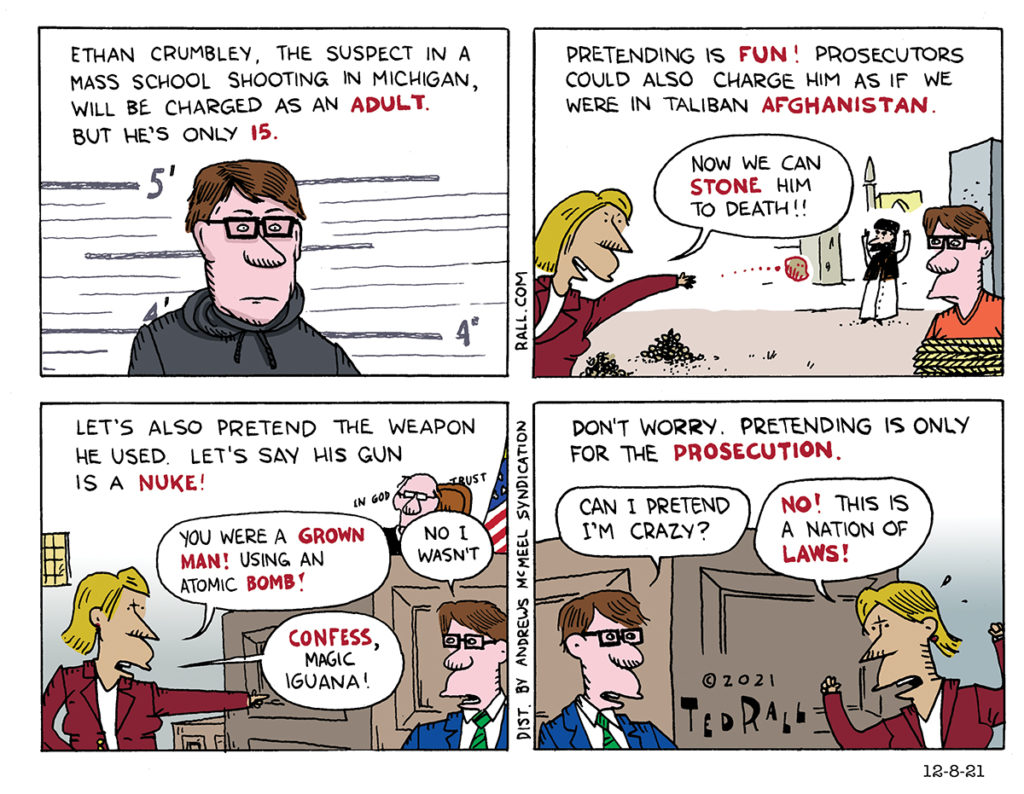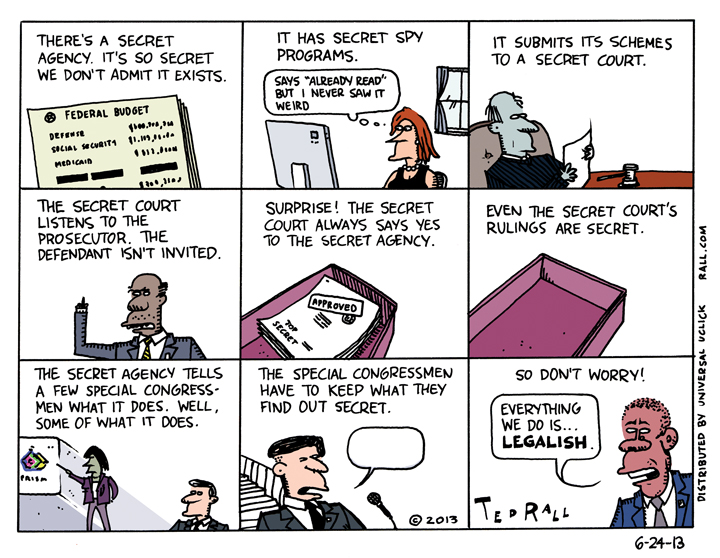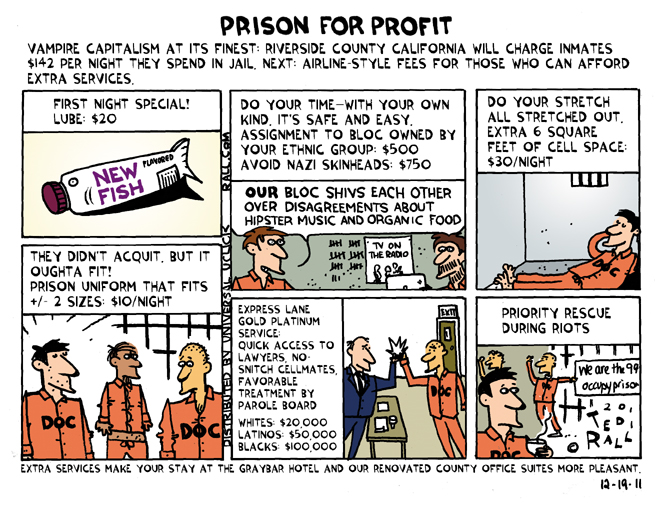
At any given time, millions of Americans are involved in either a criminal case or civil lawsuit at some level of the local, state or federal court system. Very few people get to the end of their lives without coming into contact with judges and juries charged with determining the fate of their freedom and savings accounts.
For most people, the legal system feels like a meatgrinder. Cops and officials, paid by you the taxpayer, treat you like dirt. Court fees and lawyers bleed you dry. Your reputation is at risk. So is your sanity. Nothing makes sense.
The courts impose a series of annoying and painful experiences that belie the fundamental constitutional guarantees they teach us in school and cast doubt on the assertion that we all enjoy equal justice under the law. Like a surgical procedure, time spent in an American courtroom is best gotten through as fast as possible and quickly forgotten. Never mind full-fledged reform; even incremental improvement of the legal system is usually unthinkable.
High-profile trials open a rare window into countless indignities suffered by everyday litigants and defendants. If change is possible, it can only result from the bright spotlight of a full-fledged media circus like Donald Trump’s legal travails, and especially his recently-concluded New York hush-money trial at which he was convicted on all 34 counts of falsifying business records in order to influence the 2016 presidential election. If we pay attention, this is an excellent chance to take notice of outrages that affect everyone, not just the former president.
Movie location scouts gravitate toward ornate 19th century and austere wood-paneled courtrooms for legal dramas. Trump, on the other hand, got the same bleak experience most New Yorkers suffer through when stuck in court: windowless, well-worn and poorly climatized.
Courtrooms are tiny fiefs where there is basically no recourse to counter the word of the feudal lord—the judge—who may or may not be intelligent, well-intentioned or kind. As judges go, Justice Juan Merchan of New York State Supreme showed moments of decency, like when he ruled in favor of Trump’s request to attend his son’s high school graduation ceremony. Really, though, making allowances for life’s landmarks—births, funerals, a loved one’s medical emergency, an important business meeting—shouldn’t be up to the whim of a jurist. Continuances—legalese for delays—ought to be automatically granted with rare exceptions, like a credible threat to public safety. No matter what you think of Trump, he never should have had to worry that he might not be able to see his kid’s commencement because he was on trial. No parent, Democrat or Republican, should.
Like countless defendants before him, Trump was forced to sit through day after day for weeks of mind-numbing tedium: jury selection, motions and countermotions and, of course, testimony. Like the rest of us, Trump could have made much better use of his time—in his case, campaigning for president, fundraising and managing his businesses, with the option to attend the proceedings if and when he desired. Since Trump didn’t testify, there should have been no requirement that he attend every stultifying moment—nor should there be for you and me. Let the lawyers handle it, as many do in traffic court.
This goes double because the courts are so slowwwww. Attorneys, who are paid by the hour to the tune of hundreds of dollars each, love it. But there has to be a better way. Court supervisors in every state should figure out how to speed things up, beginning by hiring more judges. Which would also unclog the courts. Given the relatively straightforward facts of Trump’s case, there was no reason for his trial to drag on for a month or for closing arguments to run all day.
Everyone should enjoy a reasonable expectation of impartiality in court. Reality is different. Justice Merchan donated money to Biden’s campaign and has a daughter who worked as a Democratic Party fundraiser. Maybe he was fair, maybe not, and the donation amount was tiny. Still, this behavior is the very definition of a conflict of interest. It demands recusal. When I was suing the Los Angeles Times—which was partly owned by the union of the LAPD, the police agency that had ordered the Times to fire me—two of the judges who considered my case were former prosecutors. They both ruled against me. No one will ever convince me that they were or could have been fair to me or to anyone else on the wrong side of the cops. Democrats should not brush aside Republicans’ complaints about Merchan’s biases.
Is it really so hard to find a judge who isn’t ethically compromised in such a direct way?
Trump’s case highlights the widespread phenomenon of prosecutorial overcharging, in which multiple counts are larded over one another in crimes that really boil down to a single discrete act and where relatively minor offenses are turbocharged into serious felonies using tortured interpretations of legal codes. Trump may have falsified 34 business records in the Stormy Daniels case but this is one crime, not 34. Mislabeling a campaign expense as a legal expense is sleazy, arguably a misdemeanor, but hardly a heinous offense calling for a maximum of four years in state prison. These tactics are used to coerce guilty pleas from defendants who are terrorized into compliance rather than faced with the justifiable consequences of their actions.
Sadly, it seems unlikely that Republican supporters of Trump, or even Trump himself, who push “tough on crime” legislation, would learn from the inherent unfairness of the legal system that abused and insulted the presumptive Republican nominee and work to improve it. But one can hope. After all, we all go through this crap at one point or another.
“If they can do this to me, they can do this to anyone,” Trump commented after his conviction. And they do.
(Ted Rall (Twitter: @tedrall), the political cartoonist, columnist and graphic novelist, co-hosts the left-vs-right DMZ America podcast with fellow cartoonist Scott Stantis. His latest book, brand-new right now, is the graphic novel 2024: Revisited.)

 Parents teach their children: you make a mess, you clean it up.
Parents teach their children: you make a mess, you clean it up.




